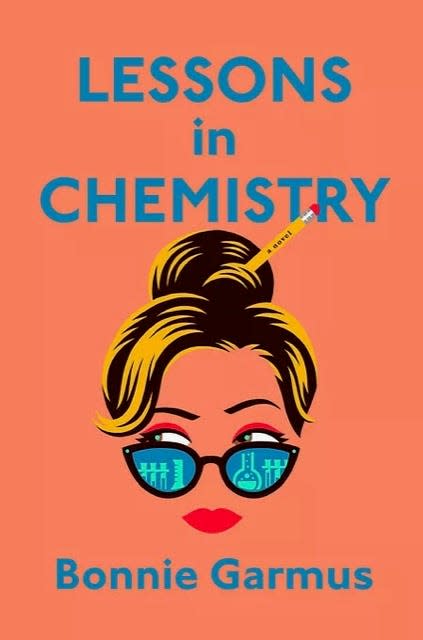Random book choice turns out to be an unexpected pleasure
On a vacation day a few weeks ago, I stepped into a small independent bookstore in Evergreen, Colo.
Usually a routine mission: Buy a book on my to-read list. My plan was different today.
I committed to buy a hardback book that I knew nothing about, perhaps something I wouldn’t normally pay hardcover prices for, a book chosen as a book-lover experiment.
This idea was, in part, to support bookstores. But I also wanted to see how it would turn out if I picked a book I knew nothing about. Would it wind up being a book I loved, or would I wish I had waited to get it on a bargain table or had checked it out of the library?
The proof would be in the reading. We all know that some books are better than others, and it’s a bummer to pay money for a book that disappoints. The shop, HearthFire Books and Treats (www.hearthfirebooksandtreats.com), is owned by a book lover who uses limited shelf space to the max, but she was not there to make a recommendation. It was close to closing time, so I couldn’t meander endlessly. I looked at new releases, wandered to the fiction shelves, peeked at YA and a few regional books, then drifted to the shop’s frozen yogurt, which augments the sale of books. Whether it’s coffee or toys or yogurt, have you noticed how creative bookstores are in boosting revenue?
Then I looked at new book after book, relying only upon cover design, summary on the inside flap and a quick look at the first page or two. On this day I wouldn’t use word-of-mouth or reviews nor allow myself to gravitate to a favorite author.
So, what book caught my eye and inspired me to shell out $29 for a hardback?

“Lessons in Chemistry,” the April 2022 release by Bonnie Garmus, a novel I’d not heard about on that afternoon jaunt.
Was it a good investment?
My goodness, yes. I loved this fierce, sad and yet hopeful book. Garmus uses the occasional metaphor to great effect and weaves a complex story with a wild array of points of view, including that of a rescue dog, which, I confess, would normally turn me off but it paid off. She takes all sorts of writing chances with POV—fantastic characters, by the way— and timeline. They work. This novel is funny but also brought me to tears a time or two with twists and turns that kept me reading late into the night. And she tied threads together in a masterful way—including the dog’s story.
This is an original and engaging novel with a fascinating mixture of the need for equal rights for women, the rigors of rowing as a sport, challenges with faith, what makes a family and how lives come together from all sorts of disparate paths.
The book is set in the early 1960s when women’s employment opportunities were limited. Chemist Elizabeth Zott, a say-what-she-thinks person who is far from average, would be the first to point out there is no such thing as an average woman. The book features an all-male team at a research institute which takes a very unscientific view of equality. Except for Calvin Evans, lonely, brilliant Nobel-nominated grudge holder who falls in love with Zott’s mind. True chemistry results. But Zott’s dream of being a scientist is shoved aside a few years later when she finds herself as a single mother and the reluctant star of America’s most beloved cooking show, in a world that tries to pigeonhole housewives.
Garmus was 64 when this was published by Doubleday, after her first effort at a novel was rejected dozens of times. And turns out, I wasn’t the only one who discovered “Lessons in Chemistry,” now a NYT bestseller, in print in 38 languages and planned as a 2023 series on Apple TV+, produced by and starring Academy-Award winner Brie Larson.
So, what did I gain from my weird little experiment?
I want to take more risks in what I choose to read and look for new-to-me writers.
Best of all, though, I realized yet again that reading still has the power to delight me after all these years. Friends, don’t forget in our busy, noisy world that stories entertain, educate and enhance our lives. “Lessons in Chemistry” will linger with me for a long time.
And I can’t wait to choose what to read next.
Columnist Judy Christie is the author of 18 novels and nonfiction books. With NYT bestselling author Lisa Wingate, she co-authored “Before and After: The Incredible Real-Life Stories of Orphans Who Survived the Tennessee Children’s Home Society,” the nonfiction sequel to Wingate’s novel “Before We Were Yours.” For more about Christie, see www.judychristie.com or follow her on Facebook: www.facebook.com/JudyChristieAuthor.
This article originally appeared on Shreveport Times: Random book choice turns out to be an unexpected pleasure
